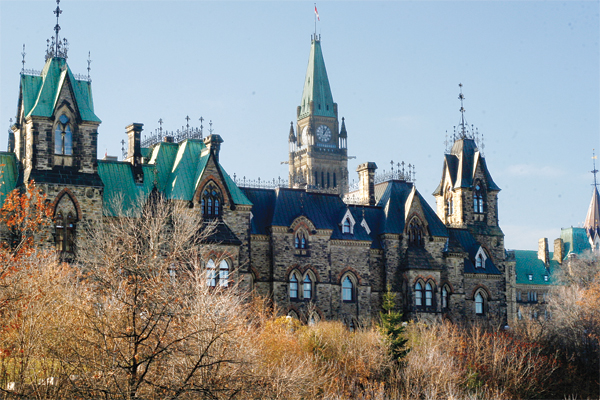NDP MP tabled Bill C-620 to protect interns from ‘abuse’
Photo by Tina Wallace
SASKATOON (CUP)—A newly proposed piece of federal legislation that aims to protect unpaid interns from unfair work conditions is scheduled for debate this fall.
New Democrat Member of Parliament Laurin Liu tabled Bill C-620, the Intern Protection Act, in the House of Commons on June 16.
Its enactment would amend the definition of “employee” in the Canada Labour Code to include unpaid interns, thus extending the same workplace protections that cover paid employees to interns who do not receive a wage.
“Currently in Canadian law, there is no reference to interns whatsoever, so right now there’s sort of a wild west situation for interns in which no federal law protects them against abuse,” Liu said. “The bill would essentially offer all interns, both paid and unpaid, the same protections that paid employees receive.”
Liu and the NDP are hoping to end the exploitation of unpaid interns by placing a cap on the number of hours an intern can work. The bill would also grant interns the right to refuse dangerous work and offer them protection from sexual harassment.
Click here to read the original story from the Sheaf
The bill was inspired by the death of 22-year-old Andy Ferguson in November 2011. A practicum student at the Northern Alberta Institute of Technology in Edmonton, Ferguson died after working a 16-hour day at a radio station where he was doing an unpaid internship. While driving home, Ferguson’s vehicle crossed the centre line and struck a gravel truck head-on.
“These are the kinds of abuses that we see elsewhere … we’re hoping that interns and future interns in Canada will benefit from certain minimum protections,” said Liu.
The second part of the bill deals with the fact that interns are considered free labour by many employers. Liu hopes Bill C-620 will prevent companies from turning paid jobs into unpaid internships.
“What’s happening to them across Canada is that, unfortunately, employers are taking advantage of interns by replacing paid positions with unpaid internships,” Liu said.
The bill would force internships to be educational and to provide training equal to that offered in a post-secondary institution. Additionally, the bill would ensure that internships primarily benefit the intern and offer tangible training opportunities.
Youth unemployment is currently double the national average, and many university graduates are having a hard time finding work after earning their degree. As a result, young workers must often resort to taking unpaid internships to start their careers.
Currently, the bill is operating on a complaint-based system where interns would be responsible to report abuses. “What this bill would do is it would provide the courts a new tool to examine whether or not the internship is legal,” Liu said.
So far, the bill has been endorsed by the Canadian Alliance of Student Associations, the Canadian Federation of Students, the Fédération étudiante collégiale du Québec, the Regroupement Étudiant Franco-Ontarien as well as the Canadian Intern Association.
The bill is limited to federally regulated workplaces and would not affect interns working in businesses or government institutions regulated by the provinces.
“I think everyone should benefit from those kinds of protections whether they’re interns or employees,” said Liu. “I think those are protections that we owe to every worker.”






